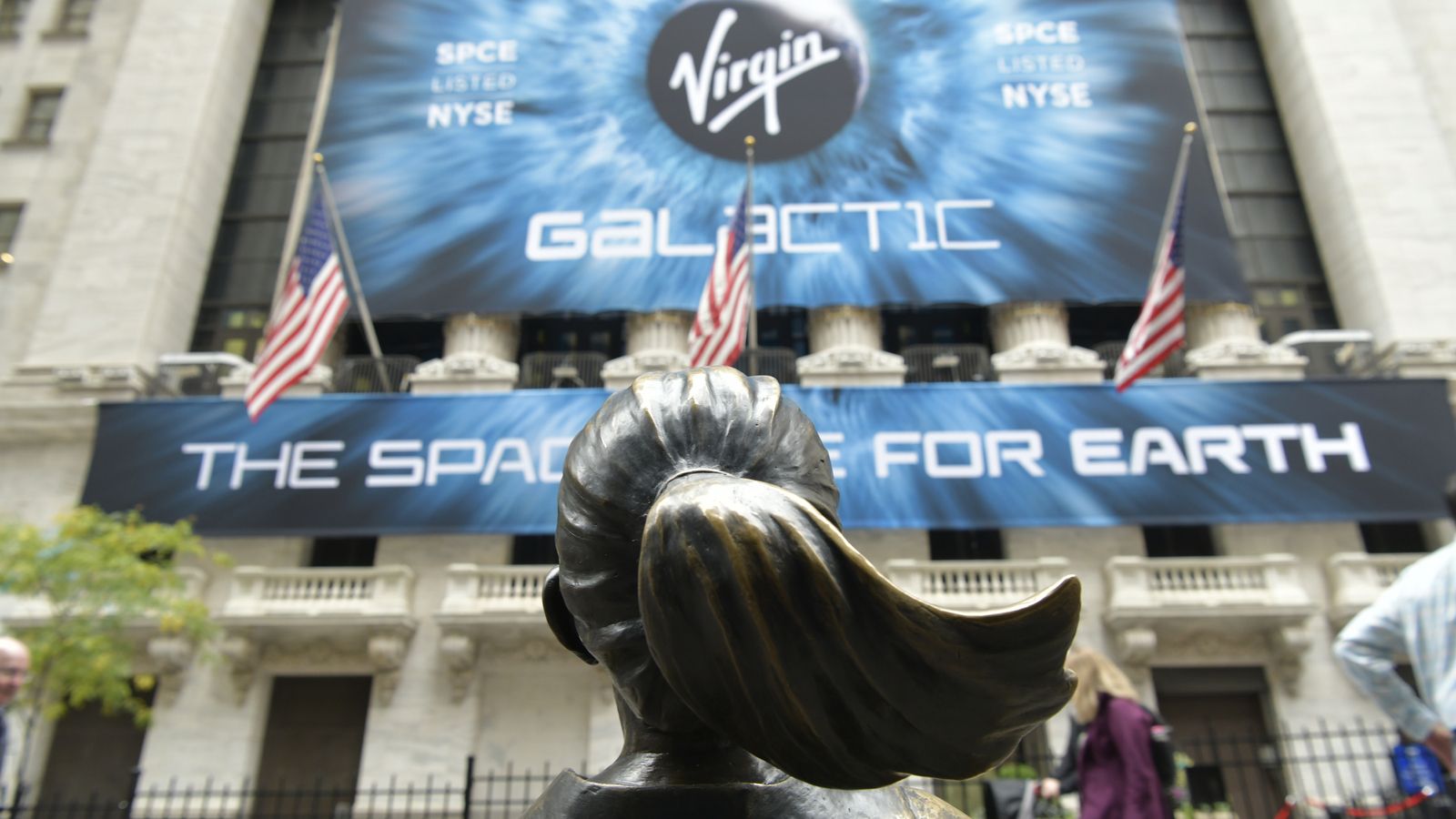Most of us are curious about the unknown. And there’s no greater mystery than the universe aside from our planet. Fundamentally, then, I can appreciate why the interest in Virgin Galactic (NYSE:SPCE) is sky-high. Moreover, I also get why many investors have decided to speculate on SPCE stock.

Frankly, only a lucky few can afford the $250,000 ticket price that the company is charging to soar to the edge of space. But at least we can participate in a future space economy by buying Virgin Galactic’s shares.
Still, it’s hard not to have some skepticism towards Virgin Galactic. With such an exclusive consumer base, the company is under pressure to ensure that most of their marketing pitches result in sales.
Further, I imagine that the company’s operations — including everything from flying the spacecraft to the background maintenance that keeps everything afloat — are complex. It’s not like the New York subway system, where missing one train isn’t a big deal.
But perhaps the biggest concern about SPCE stock is that we’ve seen this story play out not too long ago. Back in 2008, a few people purchased suborbital space-flight tickets from a company called XCOR Aerospace. For $95,000 (or roughly $117,000 today using the Bureau of Labor Statistics’ inflation calculator), the well-heeled could live out their astronaut fantasies.
And for a while, everything seemed to be on the up-and-up. In 2013, XCOR made news when astronaut Buzz Aldrin and Unilever’s (NYSE:UL) Axe body spray announced that they would launch an online contest, with 22 winners being launched into space via XCOR’s Lynx spacecraft.
That news was covered by InvestorPlace writer Nate Wooley, whom some of our longtime readers may remember. But Wooley hasn’t contributed to InvestorPlace lately, while XCOR Aerospace went out of business.
That’s not to suggest that SPCE stock will follow in its footsteps. However, I bring that up because space flight and the space economy have multiple challenges that investors shouldn’t ignore.
SPCE Stock Is Dependent on a Tough Business Model
To be fair to those who are insistent on holding SPCE stock, Virgin Galactic is no XCOR. Far from it. For one thing, a significant factor in XCOR’s failure was lack of funding. But it had brains, resulting in incredibly innovative ideas. And having limited resources tends to make individuals resourceful, which helped XCOR in its early days.
Second and more importantly, Virgin Galactic has proven its concept of utilizing a carrier vehicle to get to the edge of space relatively safely. Yes, there was that deadly crash in 2014 which investigators determined was caused by pilot error. Beyond that, it’s been generally smooth sailing for the firm on the technical front.
XCOR’s Lynx was a horizontal-takeoff, horizontal-landing (HTHL) vehicle, similar to a commercial airliner. While this was the simplest approach, HTHL spacecrafts would be incredibly difficult to operate, and getting into the air was risky due to the heaviness of the fuel onboard. Then flying from subsonic speeds to Mach 3 toward a maximum altitude of 62 miles presented another set of daunting challenges.
Finally, the whole thing has to be brought down safely. Otherwise, there would be a major PR disaster.
Again, Virgin Galactic’s carrier-vehicle approach is a positive for SPCE stock. However, this multiple-stage approach has its own risks and stratospheric costs. And while Virgin has exponentially more money than XCOR ever did, this alone won’t guarantee success.
More importantly from a business perspective, the ticket cost has got to come down significantly for SPCE stock to make sense over the long term. I understand the argument that if Virgin can sell tickets to the 70,000 people or so in the U.S. who have a net worth of $50 million or more, it will be a multi-billion-dollar company.
However, I doubt that Virgin can recruit a majority of these folks. First, suborbital-commercial space flight is not as fleshed out as other forms of transportation. Therefore, I can imagine that some of these rich people just want to enjoy their lives on Earth, not take a chance on ending up in a smoldering mess on a side of some mountain. Second, since it’s offering such a brief experience, I’m not sure that Virgin can consistently draw from the same well.
Obviously, that well is not very deep; that’s why the company needs a lower ticket price.
Affluent Consumers Are Difficult to Figure Out
Finally, it’s important to realize that just because a person can afford something doesn’t mean he/she will actually purchase that something. As I explained in other stories about SPCE stock, you only need to consider the failed Concorde to appreciate this dynamic.
As The Sun reported, Air France-KLM (OTCMKTS:AFLYY) and British Airways retired the Concorde due to “low passenger numbers and rising maintenance costs.” Also, the Air France Concorde crash in July 2000, which killed all 109 people on board, significantly hurt demand for its flights.
And that’s perhaps an underappreciated risk factor for SPCE stock. You see, airplanes crashes, while statistically infrequent, do happen. Yet even high-profile crashes don’t prevent most people from traveling by air across the world.
Yet when it came to the Concorde, the narrative was different. Travelers did avoid the supersonic commercial jet after the crash. I’m speculating, but perhaps that was due to the newness or exoticness of the platform. Logically, then, if something happens to passengers on a Virgin Galactic spaceflight, that could cripple the organization.
Though I appreciate what Virgin is doing, I personally will have to sit this one out. I think there are too many scientific and business variables to be comfortable with SPCE stock.
On the date of publication, Josh Enomoto did not have (either directly or indirectly) any positions in the securities mentioned in this article.
A former senior business analyst for Sony Electronics, Josh Enomoto has helped broker major contracts with Fortune Global 500 companies. Over the past several years, he has delivered unique, critical insights for the investment markets, as well as various other industries including legal, construction management, and healthcare.
